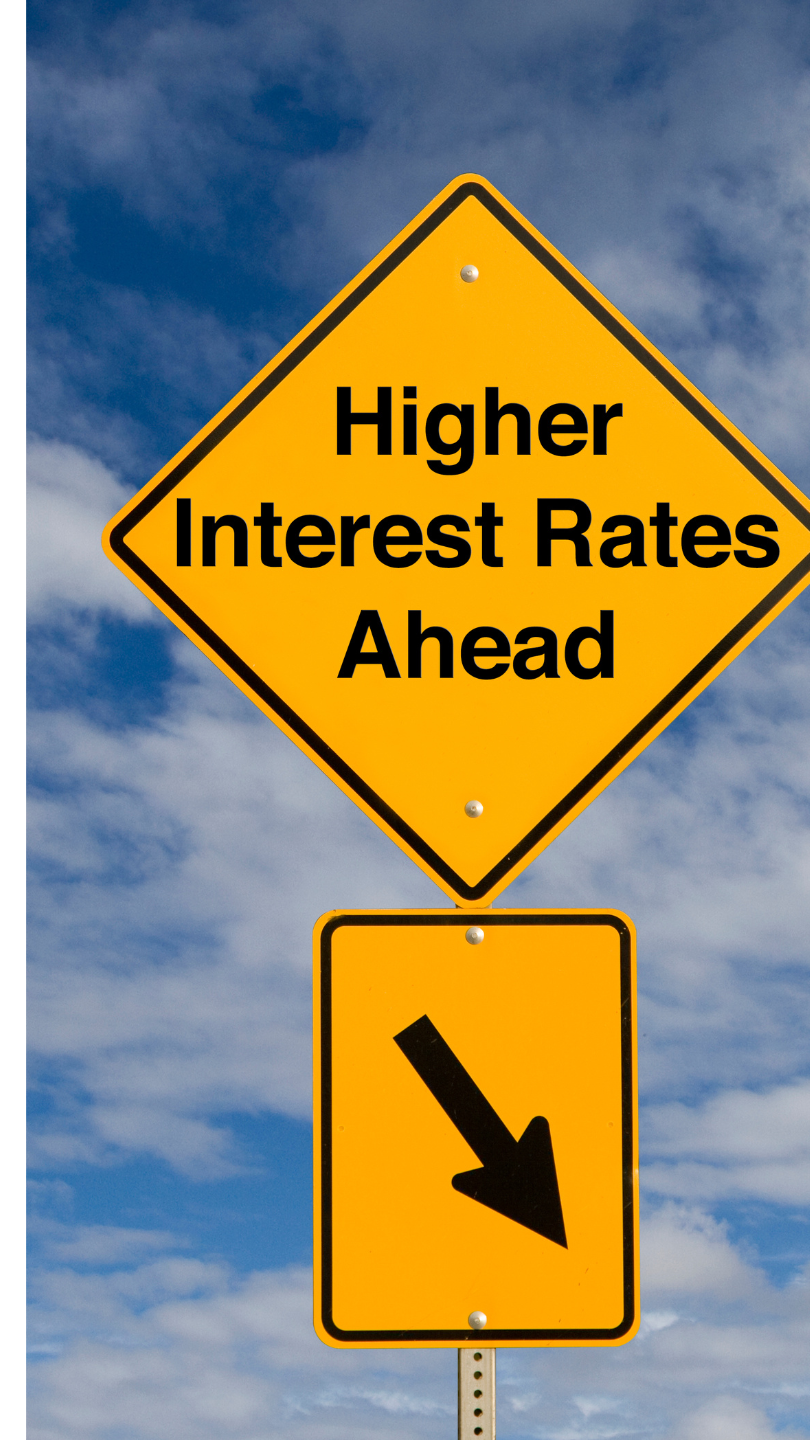What is a Mortgage ?

Definition: What is a mortgage?
A mortgage is a home loan taken out by a borrower from a lender. The mortgage works by giving the lender the right to take away the property if the borrower fails to repay the debt. The mortgage payment consists of both principal and interest, which are typically paid monthly over the life of the loan. There are two main types of mortgages: fixed-rate mortgages, in which the interest rate remains constant throughout the life of the loan, and adjustable-rate mortgages, in which the interest rate changes periodically depending on market conditions. For most homeowners, a mortgage is an integral part of owning a house since it allows them to finance their purchase over time rather than paying for it all up front.
How Do Mortgages Work?
A mortgage is a loan that allows you to buy a home. The lender provides the funds and the homeowner agrees to repay the loan, plus interest, over a specified loan term. To repay the loan, the homeowner makes monthly mortgage payments. The amount of each payment goes towards both principal and interest, with more money being applied towards principal in later years of the mortgage. This process continues until the homeowner has repaid their entire loan balance at which point they are considered to have “paid off” their mortgage. The process of how mortgages work can vary depending on factors such as whether or not it is an adjustable rate or fixed rate mortgage, as well as other factors like private mortgage insurance and closing costs. Nonetheless, every homeowner needs to understand how mortgages work before they decide if buying a home is right for them.
How Does the Mortgage Process Work?
The mortgage process involves securing a loan from a lender to purchase a house. To apply for a mortgage, you must first find a mortgage lender who will provide you with the best interest rate and terms. Once you have chosen a lender, you can then begin the mortgage preapproval process. This includes submitting documents such as income statements and credit reports in order to be approved for the loan. After your application has been submitted, the lender will review your documents and approve or deny your application. If approved, you can then move forward with the purchase of your home and sign the necessary paperwork to complete the process. As a homeowner, it is important to understand how the mortgage process works in order to make sure that you are comfortable with all aspects of the loan before signing any documents.
Why do people need mortgages?
Mortgages are loans that allow people to purchase a home. By taking out a mortgage, people can spread the cost of buying a home over time and pay it off in installments. Mortgages also provide access to financing when people might not otherwise have enough money to buy a home without assistance. This is why mortgages are so important; they enable people to purchase a home who may not have the funds available right away. Additionally, with mortgages, individuals can often get better rates and terms than they would be able to get with other types of loans, making them an attractive option. Overall, mortgages are essential for those looking to buy a home as they provide access to financing and can help make the process of purchasing a home easier and more affordable.
Can anybody get a mortgage?
Getting a mortgage is not easy and it can be difficult to know where to turn. You need to find a lender willing to offer you a home loan, and they’ll want to see proof of income, your credit score and other information. A mortgage company, bank, or credit union are all potential lenders who may be able to help with the loan. You may also choose to work with a mortgage broker who will search for the best rate on your behalf from multiple lenders. The interest rate on the mortgage will depend on the type of loan offered as well as your credit score. When looking for the best rate, it is important to compare different lenders and talk to a mortgage broker to help. With careful research and comparison shopping, anyone can get a mortgage!
What does fixed vs. variable mean on a mortgage?
A mortgage is a loan used to purchase a house or other real estate, and fixed vs. variable is an important factor to consider when taking out such a loan. With a fixed-rate mortgage, the interest rate remains the same throughout the life of the loan and your monthly payment will remain consistent as well. On the other hand, an adjustable-rate mortgage (ARM) means that the interest rate can change over time in response to market conditions. The initial rate on an ARM may be lower than that of a fixed-rate mortgage; however, it can also increase significantly during certain periods, making it more risky for borrowers who cannot handle fluctuations in their monthly payments. It’s important to weigh both options carefully before deciding which type of mortgage is best for you.
What is an Adjustable Rate Mortgage
How many mortgages can I have on my home?
When it comes to mortgages, you can typically have up to two on a single home. The first mortgage is the primary loan taken out when purchasing a property. This mortgage is usually obtained with the help of a lender and depends on your credit score. If you need additional financing, you may be able to obtain an additional mortgage. This loan is often used for home improvements or to consolidate debt. In some cases, depending upon your credit score and other factors, you can obtain up to two mortgages on one property in order to finance larger projects or take advantage of better interest rates. It’s important to keep in mind that having multiple mortgages can put more strain on your finances, so it’s best to weigh all of your options before deciding if this is the right move for you.
Why it called a mortgage?
A mortgage is a type of loan that is secured against property. It involves borrowing money from a lender in order to purchase a property, and the loan is then secured against the property itself. The borrower pays back the loan in regular installments over a period of time, plus interest on the amount borrowed. This type of loan may be used to buy a primary residence, second home or rental property. The term ‘mortgage’ comes from the French phrase ‘mort gage’ which literally means ‘dead pledge’ and refers to the fact that if you don’t repay your loan, the lender can take back ownership of your property. Mortgages are legally binding agreements between lenders and borrowers and they require borrowers to make repayments over an agreed period of time until the debt is fully repaid.
How Does A Mortgage Loan Work?
Getting a mortgage loan is a process of obtaining financial aid from a lender to purchase or refinance a home. To get a mortgage, the borrower must go through a loan process to determine their creditworthiness and the type of loan they can qualify for. The lender evaluates the borrower’s income, credit score, and assets to determine if they are eligible for the loan. If approved, the lender will issue the mortgage loan and provide funds for the purchase or refinance of the property. The borrower then repays the lender over time with interest until it is fully repaid. Repaying the loan on time each month is essential in order to maintain good credit and avoid late fees or foreclosure. Depending on the type of loan and other factors, different terms may apply for repayment including fixed-rate mortgages, adjustable-rate mortgages, balloon payments, etc. Therefore, it is important to understand all aspects of getting a mortgage before entering into any kind of home loan agreement.
How Do I Get A Mortgage?
Getting a mortgage is the process of obtaining a loan to buy a home. To start the loan process, you will need to find a mortgage lender and apply for a mortgage loan. After submitting your application, the lender will review your credit score and financial documents, such as income statements or tax returns. If you meet the lender’s requirements, you may be preapproved for a mortgage loan. Preapproval is an important step in the mortgage process that allows a potential homeowner to shop for a home with confidence. Once you have found a home and signed all of the necessary paperwork, your lender will provide funding for your purchase. With this funding and other required documentation, you can become a homeowner with the help of a trusted mortgage lender.
What is a Mortgage?
A mortgage is an agreement between a lender and a borrower in which the former provides the latter with funds to buy a home. The parties involved in a mortgage are the lender, such as a bank, credit union or mortgage company, and the borrower who applies for the mortgage. The lender reviews the borrower’s credit history, credit score and other financial information, then makes a decision whether to grant or deny the loan. If approved, the borrower will be obligated to repay the loan according to terms set by the lender. This repayment typically includes interest, principal payments and other fees associated with obtaining the mortgage. By agreeing to these terms and conditions, both parties enter into a legally binding contract that should be honored throughout its duration.
Are There Different Types Of Mortgages?
Yes, there are different types of mortgages. A mortgage is a type of home loan that requires the borrower to pay back the loan over a period of time with interest. Depending on the individual’s needs and financial situation, various types of mortgages can be considered when applying for a mortgage. The most common type of mortgage is a conforming loan, which has certain criteria that must be met in order for it to be approved. Other types include non-conforming loans, Federal Housing Administration loans and Veterans Affairs loans which all have their own unique requirements when applying for a mortgage. Each type of mortgage has its own advantages and disadvantages so it is important to research each option before applying for a mortgage as this could affect the interest rate offered.
How Are Interest Rates Set By Lenders?
Interest rates are an important factor when it comes to mortgages. Lenders set interest rates based on a variety of factors, such as the type of loan (fixed-rate loan or adjustable-rate mortgage) and your credit score. The higher your credit score, the lower interest rate you can get on your mortgage. Your credit report also plays a key role in determining what kind of rate you will get on a mortgage. It’s important to take time to review and improve your credit before applying for a loan to make sure you get the best possible rate. A higher credit score can help you secure a lower interest rate that will make your mortgage payments more affordable. Improving your credit will also give you more options when it comes to choosing the right lender to make your mortgage with.
What’s In A Mortgage Payment?
A mortgage payment is the amount of money you pay to your lender each month. It is composed of several different parts, including principal and interest, mortgage insurance, taxes and insurance. The principal is the amount of money you borrowed from the lender to buy a home. Interest is what the lender charges for lending you money. Mortgage insurance may also be included in your monthly mortgage payment if you put down less than 20% when buying your home. Private mortgage insurance (PMI) will also be part of your monthly payment if you are required to have it. Your monthly payment also includes property tax which goes towards paying the county or city where your home is located. Finally, other fees may be included in your overall monthly payment such as HOA dues depending on where you live. All together these make up your total monthly mortgage payment and are typically due on the first day of each month at a rate that was determined by current interest rates when you got approved for your loan.
What is included in a mortgage payment?
A mortgage payment is a key component of owning a home. It is the amount of money paid each month to your mortgage lender, and typically includes principal and interest on the loan, as well as property taxes and homeowner’s insurance. A portion of your monthly mortgage payment also goes toward private mortgage insurance (PMI) if you made a down payment of less than 20 percent when you purchased the home. This monthly payment is one of the most important financial obligations that you will take on as a homeowner, so it’s important to understand what is included in your monthly mortgage payment. Your lender can provide more information if you need additional clarification about what is included in your monthly mortgage payments.
When should you get a mortgage?
When is the best time to get a mortgage? It’s important to consider all your options before deciding to take out a loan from a bank. Generally, it’s best to get a mortgage when you are ready to settle down and purchase property. This could be at any stage of life, whether you’re younger and single or older and have children. Before applying for a mortgage, it’s important that you have the financial resources available to repay the loan back in full. You should also ensure that you understand the implications of taking out such a loan and have considered alternate options such as renting. Ultimately, it may be beneficial to wait until you are financially secure before taking out a mortgage.

How do you apply for a mortgage?
Applying for a mortgage is a relatively straightforward process. To begin, you need to select a lender who can offer you the best terms and conditions. Your credit score and credit report will be reviewed by the lender to determine if you qualify for a conventional loan or if you’ll need to apply for a jumbo loan. The loan term and interest rate are also considered when applying for a mortgage. Once approved, you’ll be asked to complete the mortgage application which includes details about your income, assets, and debts that will help determine your monthly payment amount. After submitting the application, your lender will review it and make a decision about whether or not to approve the mortgage loan. Once approved, closing documents will need to be signed and you may then begin making your mortgage payments.
What does your monthly payment actually cover?
Your monthly payment is the amount you pay each month to your lender for your mortgage. It includes several components: principal, interest, taxes and insurance. The principal is the amount of money borrowed from the lender and the interest is what you pay in return for borrowing that money. Property taxes are also included in your monthly payment and are determined by local government authorities. Private mortgage insurance (PMI) may be required by the lender if you make a down payment less than 20 percent of the purchase price of your home. Additionally, homeowners may choose to include additional amounts for taxes and insurance into their monthly mortgage payments so that they can cover these costs throughout the year. Ultimately, it’s important to understand what exactly makes up your monthly mortgage payment so that you can make sure it fits within your budget and make an informed decision when purchasing a home.
What happens after you pay off your mortgage?
Once you pay off your mortgage, you will no longer have to make a monthly payment to the lender. Depending on where you live, the lender may take a few weeks to officially close the mortgage account and record the deed in your name. Once that is complete, you will become the sole owner of the property and are responsible for all future payments such as property taxes. After paying off your mortgage, it is important to budget accordingly in order to continue meeting these financial obligations and maintain ownership of your home. You can also use this extra money towards any other investments or savings goals that you may have. As a homeowner, you now have more control over how much and when you pay for certain things related to your house without having any obligation to a lender.
What happens if you can’t pay your mortgage?
If you can’t pay your mortgage, it’s essential to contact your lender as soon as possible. Your lender will be able to provide advice and talk through the options available, such as changing your repayment plan or extending the length of the loan. Depending on how much is owed and how long the payments have been overdue, the lender may offer more favourable terms in order to help you repay the mortgage. The interest rate may also be reduced or frozen for a period of time so that you can catch up on any missed payments. It’s important to discuss all options with your lender so that you can find a solution that works for both parties.
How Can I Determine How Much Mortgage I Can Afford?
Determining how much mortgage you can afford is an important part of the home buying process. The best way to determine this is to consult with your lender and discuss your financial situation. Your lender can help you calculate a monthly mortgage payment that you are comfortable with based on factors such as income and debt obligations. You may also want to consider using online mortgage calculators that can provide insights into what size of a loan and monthly payment you can realistically afford. Mortgage calculators typically require you to input information about your income, debts, and the amount of money for the down payment. Once this information has been entered, the calculator will generate an estimated monthly mortgage payment. This will give you a better idea of how much mortgage you can comfortably afford.
What Goes Into A Mortgage Payment?
A mortgage payment is the amount of money that a homeowner pays to their lender every month. It consists of several different items, such as interest rate, property tax, taxes and insurance, private mortgage insurance (if applicable) and other fees. The type of mortgage will determine the exact breakdown of what goes into a mortgage payment. Generally speaking, for most mortgages the largest portion of a monthly payment will be made up of interest payments with smaller amounts going towards principal repayment and taxes and insurance. Mortgage payments also sometimes include extra amounts for mortgage insurance or private mortgage insurance depending on the type of loan taken out by the homeowner. All these components together add up to form a complete monthly mortgage payment.
Why Do Mortgages Matter?
Mortgages are an important part of the home buying process. A mortgage is a type of loan used to help potential homeowners buy a home. Mortgages are unique because they provide long term financing over a period of years, generally ranging between 15 and 30 years, with fixed monthly payments. This makes them attractive to prospective buyers who might not be able to purchase a home outright. Mortgages also make it easier for people who may not be able to save up the full amount of money required to purchase a home in one lump sum. By using a mortgage, homeowners are able to pay off their loan over time while still being able to enjoy living in their new home from day one. Without mortgages, many people would not be able to afford to own their own homes and this is why mortgages matter.
How Does the Mortgage Process Work?
The mortgage process starts when a potential homeowner applies for a mortgage at a lender. The lender then evaluates the borrower’s financial situation to determine if they qualify for a loan and what interest rate they should be offered. This is known as mortgage preapproval. Once preapproved, the borrower will select their mortgage terms and sign the necessary documents to secure financing from the lender. The lender will then verify all of the information provided in the application and may require additional documentation depending on the specifics of each case. Once everything is approved, closing documents are signed and funds are transferred from the lender to the homeowner, who can then begin making their monthly payments according to the terms agreed upon with their mortgage lender.
What Are Mortgage Terms and What Can Affect Them?
Mortgage terms are the provisions of a mortgage loan agreement between a lender and borrower. They include the interest rate, loan term, monthly mortgage payment, and other conditions related to the mortgage loan. Mortgage terms can be affected by many factors, such as credit score, income level and debt-to-income ratio, which all influence whether a person qualifies for a mortgage. Higher interest rates usually accompany lower credit scores or higher debt-to-income ratios. Additionally, taxes and insurance premiums may be factored into the homeowner’s monthly mortgage payment. Loan terms also affect the size of a monthly payment; longer loan terms will decrease the monthly payment but increase the overall cost of the loan. Finally, lenders may require mortgage insurance on certain loans in order to protect their investment should the borrower default on their mortgage payments. All of these factors play an important role in determining an individual’s mortgage terms.

Do I own my home when I have a mortgage?
When you have a mortgage, you don’t actually own your home outright. You still owe the lender money and they hold the title to the property until the loan is paid in full. However, by making your mortgage payments on time and in full, you are gradually building up equity in your home. As this happens, more and more of the house belongs to you and less of it belongs to your lender. This also means that you will be responsible for paying any property tax due on your home as well as general upkeep costs like repairs or renovations. Although having a mortgage doesn’t mean that you technically own your home yet, it does mean that if all goes according to plan, eventually you will be able to call it yours.
How are mortgages different from other loans?
Mortgages are different from other loans in several ways. One of the main differences is that a mortgage lender will use the value of the property to secure the loan. This means that if the borrower fails to repay the loan, the lender can take possession of the property. Additionally, mortgages typically feature lower interest rates than other loan types due to their greater security. The loan amount and term are also generally higher with mortgages than with other loans, allowing borrowers more time and money to repay them. During the mortgage application process, lenders may also consider factors such as credit score, income and employment history when determining whether an individual qualifies for a mortgage. All these factors combine to make mortgages distinct from other types of loans.
How do I qualify for a mortgage?
Getting a mortgage is a big step towards achieving the dream of owning a home. To qualify for a mortgage, you need to meet certain criteria set by your lender. Generally, most lenders require that you have a good credit score and a stable job history. You also need to submit proof of income and complete a credit report. Depending on the loan type, such as conventional loan, you may need to pay a down payment or provide additional documentation. Your monthly payment will depend on the loan amount and the current mortgage rates available. Once approved, the lender will provide you with the funds necessary to buy your home and will expect you to repay them according to their terms. A mortgage is a great way to finance your home purchase but it is important that you understand what’s involved in qualifying for one before taking the plunge!
How Do Mortgage Rates Work?
Mortgage rates are an important factor in the process of getting a mortgage loan. Mortgage rates are set by lenders, and can vary depending on a borrower’s credit score, income, and other factors. Generally, mortgage rates are expressed as an annual percentage rate (APR). There are two main types of mortgages: fixed-rate mortgages and adjustable-rate mortgages (ARMs). Fixed-rate mortgages have an interest rate that is fixed for the life of the loan. ARMs have an initial interest rate that is fixed for a certain period of time, after which it will adjust based on market conditions. Getting the best mortgage rate depends on several factors, such as your credit score, loan amount and loan term. It is important to compare different lenders before you decide to get a mortgage so you can find the most affordable payment plan with the best terms. A mortgage lender can help you understand all your options before you make a final decision about your mortgage loan.
What Is a Mortgage Pre-Approval?
A mortgage pre-approval is a process that is done by a mortgage lender to determine if a potential homebuyer will qualify for a loan. The process involves gathering financial information, such as income and credit score, from the buyer and running it through the lender’s criteria. If the buyer meets all of the requirements, the lender will issue a mortgage pre-approval letter to the potential homeowner. This letter provides assurance to buyers that they are qualified to purchase a home and can help them make an offer on their dream home with confidence. With this letter in hand, buyers can negotiate confidently with sellers knowing that their financing is secure. The pre-approval process is important because it helps ensure that buyers are able to buy a home within their means and start off their homeownership journey on the right foot.
What Is a Mortgage Loan Limit?
A mortgage loan limit is the maximum amount of money a lender will finance you for when taking out a mortgage loan. This limit is determined by the size of your down payment, your credit score, and other factors such as debt-to-income ratio. For example, if your down payment is less than 20%, then most lenders will cap your mortgage loan at 80% of the value of the home. If you need to borrow more than this amount, then you may have to take out a jumbo loan. Jumbo loans have higher interest rates due to their larger size and are usually offered by lenders who specialize in these types of mortgages.
What Credit Score Is Needed To Buy a House?
When it comes to buying a house, your credit score plays an important role in determining the best mortgage rates and loan type available to you. Generally speaking, the higher your credit score is, the better mortgage rates will be offered by lenders. To qualify for a conventional loan, most lenders require a minimum credit score of 620 or higher. If you’re looking to buy a home with a jumbo loan, then you’ll likely need at least 680 or higher. It’s important to shop around for the best mortgage rate and compare lenders when purchasing a home. Although different lenders have different requirements, having good credit is essential in order to get the best rate on your loan and save money on interest in the long run.
Non-Conforming Loans: Government-Insured Mortgages
Non-conforming loans, also known as government-insured mortgages, are a great option for those who want to buy a home but don’t meet the requirements of a conventional loan. These loans typically come with lower credit score requirements and more flexible terms than conventional loans. However, these loans also require a mortgage insurance premium, which can be higher than that of a conventional loan. If you default on your non-conforming loan, the lender is protected by the mortgage insurance. You may be responsible for private mortgage insurance if you choose to purchase it. Non-conforming loans can sometimes offer better rates and terms than conventional loans, so they are worth exploring if you’re looking to buy a home.
Common mortgage myths
When it comes to mortgages, there are a number of common myths that can lead prospective buyers astray. For starters, many people think that the only way to get a mortgage is through a bank or other traditional lender. In reality, there are many different mortgage programs and lenders that can help you finance your home purchase. Additionally, some people believe that having an excellent credit score is necessary in order to qualify for a mortgage loan; however, this isn’t always the case. There are plenty of lenders who specialize in working with people who have less-than-perfect credit scores. Lastly, some people mistakenly think that getting approved for a mortgage is difficult; however, the truth is that with the right preparation and research, obtaining a common mortgage can be relatively straightforward.
Mortgage Calculators
Mortgage calculators are a great tool to help you understand your monthly mortgage payment. A mortgage is a home loan that is used to purchase a house. When you take out a mortgage, your monthly payments go towards the principal of the loan plus the interest rate that was agreed upon. Mortgage calculators can help you figure out how much you will be paying each month and how long it will take to pay off the loan. They can also give you an estimate of what your total payments will be over the life of the loan. Mortgage calculators are an essential tool when it comes to understanding and budgeting for your monthly mortgage payments.
Mortgage Glossary
A mortgage glossary is a helpful resource to understand the different terms associated with mortgages. Mortgage is a loan taken out by a homeowner to purchase or refinance their home. The lender or mortgage company provides the loan and sets the interest rate, loan amount, and other terms of the mortgage. Property tax is an additional cost paid by homeowners to local government in the form of annual taxes. Monthly mortgage payments are made up of principal and interest which go toward paying off the loan over time. Common mortgage terms include Fixed Rate Mortgages, Adjustable Rate Mortgages, and Balloon Mortgages. Understanding how each type works will help you decide which fits your needs best. Knowing where your monthly mortgage payment will go and what it will pay for can help you budget accordingly and make sure that you keep up with payments to avoid foreclosure from your lender or mortgage company.






















